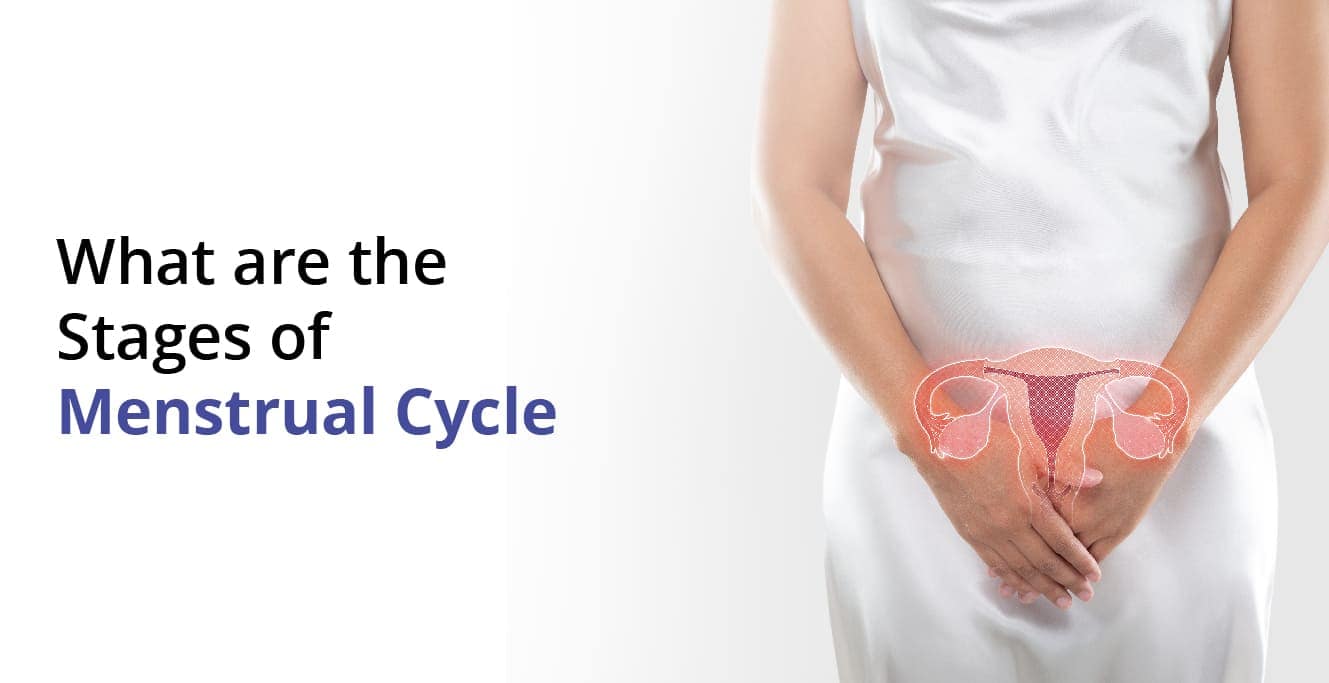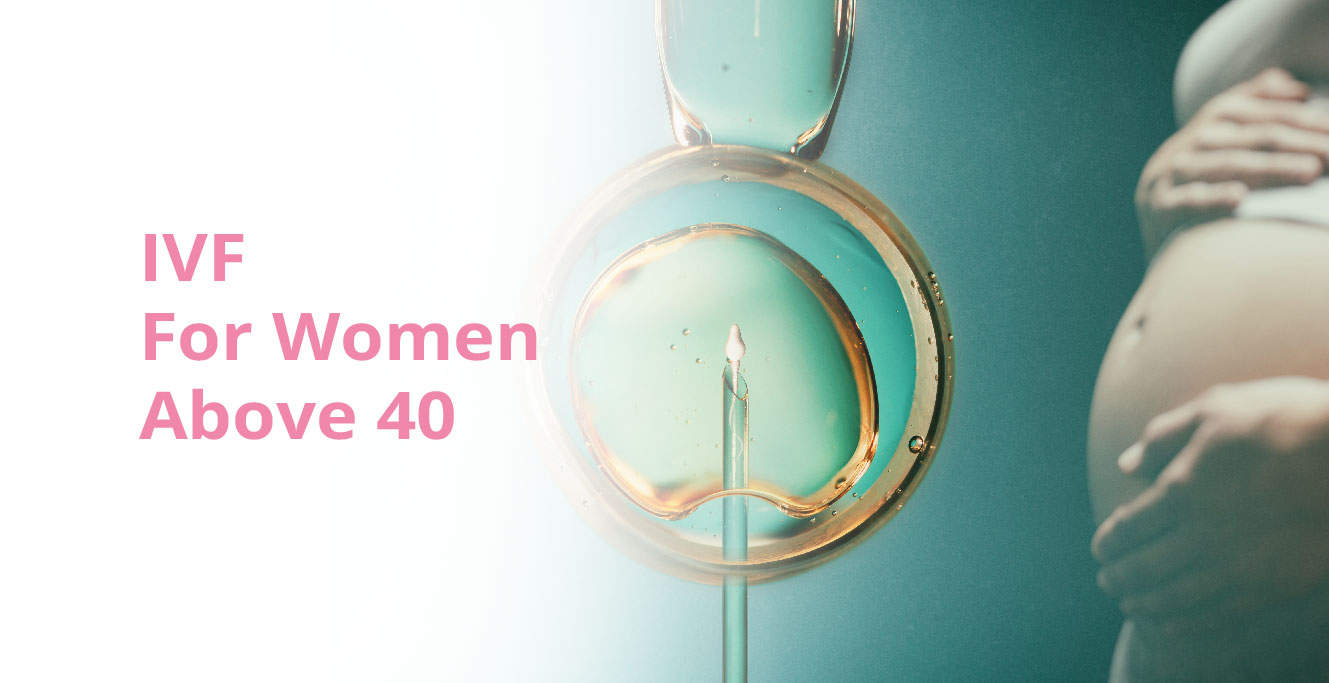How Infertility Treatment isn’t as bad as you think
- Published on April 27, 2022

Being diagnosed with infertility is not something to be ashamed about. Anyone at any age can be detected with male or female infertility. When a couple is unable to conceive after a year of trying, they are often diagnosed with infertility. Primary infertility is the diagnosis given to a couple seeking to conceive their first child. If they try to have another child, they are diagnosed with secondary infertility.
A couple is diagnosed with infertility if they have recurrent miscarriages (typically after three losses in a row).
That being said, let’s discuss the below question that may arise in every couples mind.
Table of Contents
When should you seek infertility treatment?
If a woman under the age of 35 isn’t pregnant after a year of trying, she should visit a fertility expert. If you’re over 35, you should seek treatment sooner (after six months of trying). With age, a woman’s chances of becoming pregnant diminish.
As per studies, a 30-year-old woman’s fertility is half that of a 20-year-old woman.
If you have a risk factor that can impact fertility, you should get treatment as soon as possible, regardless of gender.
What things should one keep in mind before going for IVF?
- IVF requires time and patience
Choosing to go for In vitro fertilisation (IVF) is both exhilarating and daunting. On the one side, the treatment brings you closer to conceiving. On the other hand, not knowing what to anticipate and unsure. It is always advised to be stress-free and be patient.
- Get your health in check and keep your body healthy
IVF success rates can be substantially improved by maintaining a healthy weight, reducing alcohol use, and eliminating tobacco and other substance usages. Before attempting to conceive, have physical conditions like high blood pressure and diabetes under control or checked.
- Choose the right fertility clinic
It’s critical to comprehend the factors that may assist you in selecting the best one. Choosing the best fertility clinic is important. Below are some factors before deciding the right place:-
- Success rates
You must speak with the team of fertility experts in person about their success rates.
- Clinical Experience
A good fertility clinic would have a staff of highly skilled specialists that specialise in infertility treatments. Fertility experts including counsellors, nurses and lab technicians all together make up the clinical staff. Visiting and consulting with some of the clinic’s employees might help you gain a sense of the clinic’s atmosphere.
- The technology used and offered
To give optimum convenience to the couple receiving treatment, the clinic should ideally offer all latest and advanced technologies with the clinic.
- Sensitive towards the patients
It is important for the fertility experts to be sensitive towards the patient and offer to counsel as and when needed, at every stage of the treatment.
Who makes the diagnosis of infertility?
The first diagnosis of infertility is usually made by your gynaecologist.
But, if you have any health concerns that might contribute to infertility, such as thyroid difficulties, diabetes, or PCOS, an endocrinologist or fertility expert may alert you with the likelihood of fertility problems.
The fertility experts at Birla Fertility and IVF will treat you after the first diagnosis of infertility and assist you well in your journey towards the dream of parenthood.
What can be the causes of male and female infertility?
Fertility is affected by a variety of lifestyle variables in both men and women. Nutrition, weight, exercise, physical and psychological stress, environmental and occupational exposures, substance and drug use and abuse and medicines are just a few examples.
Common causes of female infertility:-
Fallopian Tube Damaged or Blocked: A damaged fallopian tube inhibits sperm from reaching the egg to fertilise it, or an embryo from reaching the uterus to initiate pregnancy.
Ovulation problems: Ovulation disorder is a condition that causes failed or irregular ovulation by interfering with the normal ovulation process. Ovarian cysts and Polycystic Ovarian Syndrome (PCOS) are two prevalent ovulatory diseases.
Common causes of male factor infertility:-
Low production of sperm: Premature ejaculation or inability to ejaculate semen can lead to ejaculation dysfunction. The most frequent cause of male factor infertility is known as azoospermia (total absence of sperm cells) or oligospermia (few sperm cells generated).
Imbalanced hormones: Infertility in men can be caused by problems with the pituitary glands, thyroid, or adrenal glands. In males, a variety of factors can contribute to low testosterone and other hormonal problems.
In case of infertility, what are the treatment options for males and females?
There are two most common types of infertility treatment options:-
1- Intrauterine insemination (IUI) is a simple procedure in which the sperm is collected from the male and injected directly into the uterus when the woman is ovulating. IUI is usually the first step before IVF, couples are recommended to try at least three rounds of IUI before going for IVF.
2- In vitro fertilization (IVF) is the most common and effective ART procedure in which the eggs are taken from the ovaries and fertilized by sperm in a laboratory, and once they develop into embryos, they are transferred through the woman’s vagina and cervix and implanted in the uterus via a catheter.
How can infertility treatment be advantageous?
IVF increases a couple’s chances of pregnancy and helps them in becoming parents.
- When all infertility treatments have failed, IVF can help
Before deciding on IVF, patients undergo a variety of fertility treatments, including fertility drugs, intrauterine insemination, and so on. After certain infertility diagnoses, fertility experts may prescribe IVF right away so you don’t waste time and money on fertility treatments that aren’t likely to succeed.
Blocked fallopian tubes, severe male infertility problems, decreased ovarian reserves, and/or advancing age of women can lead to infertility.
- IVF procedure can be used by any member of society
In-vitro fertilisation isn’t just for the mother, it may also be utilised by surrogacy or gestational carriers, allowing a wider spectrum of people to experience pregnancy and become parents. To mention a few, this includes same-sex couples, women who are physically unable to carry a baby due to complications, and single women.
- Donated eggs and/or sperm can be used
In some cases, fertility experts may propose to utilise donated sperms or eggs. The eggs can be manually fertilised at the centre and the viable embryo can be utilised for IVF, therefore increasing your chances of becoming pregnant on the first or second try.
- Complete control over time
IVF provides overall control to couples who are focused on their career and want to delay their want for the kid. The eggs that are preserved can be used in the future. You may then set a window of time when you want to get pregnant – or when you want your child to be born – and work backwards to figure out what would be the best time to start IVF treatment.
- Chances of delivering a healthy baby increases
Genetic testing is a great tool for ensuring that a baby is born healthy. You may verify that the foetuses utilised in IVF are devoid of known genetic markers by using genetic screening, also known as preimplantation genetic testing (PGT). These have been related to life-threatening diseases such as cystic fibrosis, Down syndrome and sickle cell anaemia. If the mother and/or father test positive for certain disorders, or if there is a family history of significant genetically related diseases, the tests are performed.
- Chances of miscarriage are reduced
A prevalent reason for miscarriages is a genetic defect, which may lead the body to naturally terminate the pregnancy. Mothers have a greater chance of having a healthy pregnancy and bringing the baby to term if they use PGT(Preimplantation genetic testing) to evaluate the genetic viability of an embryo.
- Chances of conception are improved
All other assisted reproduction methods have a lower success rate than IVF with PGT (Preimplantation genetic testing). If necessary, several cycles may be utilised to improve a woman’s chances of conception and healthy pregnancy.
- No constraints and limitations
IVF removes the majority of the obstacles that people have when trying to conceive. Unexpected infertility, blocked tubes, frozen pelvis, and PCOS, to mention a few, are no longer a problem. Male infertility, a low sperm count, or a lack of sperm aren’t going to stop you from becoming a parent.
IS IVF a safe procedure?
IVF is a safe and effective option for having a healthy baby in case of infertility in males or females. The risk of complications through IVF is very low. For women who conceive through IVF, the chance of risks is roughly the same as through natural birth, with the risk increasing with age. IVF acts as a safe male infertility treatment and female infertility treatment for patients with infertility problems.
Related Posts
Written by:
Dr. Apeksha Sahu
Consultant
Dr. Apeksha Sahu, is a reputed fertility specialist with 12 years of experience. She excels in advanced laparoscopic surgeries and tailoring IVF protocols to address a wide range of women’s fertility care needs. Her expertise spans the management of female reproductive disorders, including infertility, fibroids, cysts, endometriosis, PCOS, alongside high-risk pregnancies and gynaecological oncology.
Ranchi, Jharkhand
Our Services
Fertility Treatments
Problems with fertility are both emotionally and medically challenging. At Birla Fertility & IVF, we focus on providing you with supportive, personalized care at every step of your journey towards becoming a parent.Male Infertility
Male factor infertility accounts for almost 40%-50% of all infertility cases. Decreased sperm function can be the result of genetic, lifestyle, medical or environmental factors. Fortunately, most causes of male factor infertility can be easily diagnosed and treated.We offer a comprehensive range of sperm retrieval procedures and treatments for couples with male factor infertility or sexual dysfunction.




































